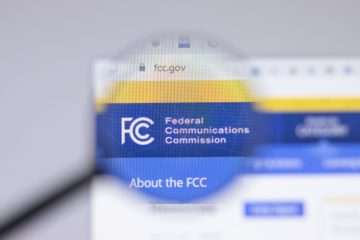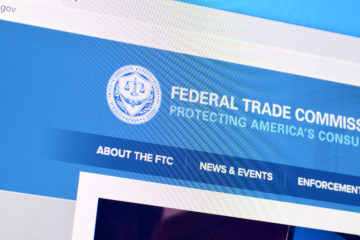The Market Institute Senior Fellow Norm Singleton has a new article in Real Clear Markets looking at legislation that may be voted on in this month’s lame duck session of Congress, the “American Innovation and Choice Act” (S. 2992) that would prohibit Big Tech companies (mainly Amazon, Google and Meta, the parent company of Facebook, Instagram, and WhatsApp) from “preferencing” its own products on its own online platforms.
“At the Wegmans where I shop the Wegmans brand products tend to be more prominently displayed than the “name” brands. This is obviously intended to make customers more likely to grab a Wegmans brand off the shelf, and, at least in my case, it often works.
You may be thinking so what, but many in DC think federal government should outlaw this type of “preferencing.” They think it is unfair for stores to try to encourage customers to abandon name-brand products in favor of the store’s own goods.
Ok, I’m joking. The idea that brick-and-mortar stores like Wegmans should be forbidden from preferencing their own product is too absurd even for Congress. Unfortunately, the same cannot be said of Internet commerce. Legislation that may be voted on in this month’s lame duck session of Congress, the “American Innovation and Choice Act” (S. 2992) would prohibit Big Tech companies (mainly Amazon, Google and Meta, the parent company of Facebook, Instagram, and WhatsApp) from “preferencing” its own products on its own online platforms. It would also prevent this companies from requiring third-party vendors to use other of the tech companies’ services as a condition of using their platforms.
This would force Amazon to make sure that product searches done on Amazon’s own website did not put Amazon’s own products first in search results—the cyber equivalent of forbidding Wegmans from displaying more of its own products so customers are more likely to buy them. It would also forbid Amazon from requiring third-party vendors use Amazon’s shipping and warehousing services as a condition of using the Prime designation. This would make it impossible for Amazon to guarantee the same quick delivery Prime is noted for, and it would even forbid Amazon telling customers that the vendor does not use Amazon’s shipping services so the company can’t guarantee its very popular one-or-two-day delivery.
This would obviously disincentivize Amazon from allowing third-party vendors to participate in Prime.
The bill would also forbid Google from listing Google Maps at the top of an Internet search for online directions—even though many consumers choose to use Google maps because they find it the best navigation service available. But to many in Congress, offering a better product is “unfair” competition if you are already “too big.”
This bill will not only harm small businesses, which use Amazon’s platform to reach new consumers, and consumers who use Amazon’s platform to buy goods from small business they would otherwise never have heard of, it is also a major violation of the rights of private property and contract. Amazon, Google, and other websites belong to their owners and investors every bit as much as Wegmans grocery stores belong to Wegmans’ owners. Therefore, the federal government has no legitimate authority to tell these companies who they can and cannot let use their platforms and under what terms. Everyone complaining that preferencing is unfair to third-party vendors should consider that Amazon, Google and other tech companies have no legal or moral oblation to allow any third-party vendor to sell their goods on their site.
Given that this bill violates private property rights and expands government power in ways that will hurt the economy, one would expect most Republicans to not just oppose it, but vigorously fight it.
However, some Republicans—including Senators Charles Grassley, Lindsey Graham, Cynthia Lummus, and Steve Daines have allowed their animus toward Big Tech to nudge them into anti-business regulation they’d usually oppose—at least when they come from a Democrat like S. 2992 sponsor Amy Klobuchar. Unfortunately, these Republican supporters of S. 2992 have convinced themselves conservatives will benefit by giving the bureaucrats under Federal Trade Commissioner Lina Khan greater power over the Internet.
Those looking for a principled approach to dealing with Big Tech should follow the example of Kentucky Sen. Rand Paul. After YouTube removed some of Sen. Paul’s videos, he announced he was leaving YouTube for Rumble. Rumble is one of a number of sites that are attracting users by promising a more content-creator friendly platform than that offered by the big companies.”


